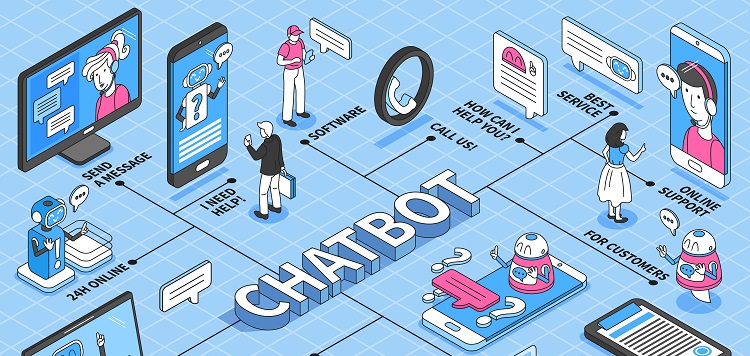In recent years, chatbots have emerged as a popular tool for streamlining the hiring process. These conversational agents can handle tasks such as initial candidate screening, scheduling interviews, and answering basic questions from candidates. However, as with any technology used in recruitment, it’s essential to carefully navigate the intersection of chatbots, privacy, and recruitment to ensure compliance with privacy regulations and protect candidate information.
The Emergence of Chatbots in the Hiring Process
Chatbots have become increasingly prevalent in recruitment in recent years. Companies are using them to improve the efficiency of their hiring process, from initial candidate screening to scheduling interviews. Chatbots have the potential to reduce the workload of recruiters, allowing them to focus on more complex tasks.
The Intersection of Chatbots, Privacy, and Recruitment
While chatbots can improve the efficiency of recruitment processes, they raise significant privacy concerns. Chatbots collect a vast amount of personal data from candidates, which requires both companies and chatbot providers to implement measures to ensure the security and privacy of candidate data.
Designing Chatbots with Privacy-by-Design Principles
Privacy-by-design principles should be a fundamental component of any chatbot intended for use in recruitment processes. Privacy by design means designing products with privacy in mind from the outset. Chatbots should be designed to minimize the collection of personal information and ensure that only necessary information is collected to complete the task.
Obtaining Explicit Consent from Candidates
It’s crucial to obtain explicit consent from candidates before collecting their personal information. Candidates should be informed about the types of data collected, the purpose of the data collection, and how the data will be used, stored, and shared. Obtaining explicit consent ensures that candidates are aware of the data collected about them and agree to its purpose.
Collecting only the minimum amount of data necessary
Chatbots used in recruitment should only collect the minimum amount of data required for the recruitment process. This can be achieved by designing the chatbot’s questioning methods to obtain only relevant information about the candidate’s qualifications and experience.
Implementing Appropriate Security Measures
Personal data collected by chatbots must be secured to ensure the safety of candidate information. Companies need to implement appropriate security measures to avoid data breaches, including adopting encryption protocols and implementing multi-factor authentication.
Providing Clear Information About Data Usage and Storage
Companies need to provide clear information to candidates about how their data will be used, stored, and shared. This information should be transparent and easily accessible.
Establishing data retention policies
Companies must define data retention policies and delete candidate data once it is no longer necessary for recruitment processes. This ensures that personal data is not kept needlessly and eliminates the risk of data breaches.
Ensuring accuracy, unbiasedness, and compliance of chatbot responses
It is crucial to ensure that chatbots generate accurate, unbiased responses that comply with company policies and legal requirements. Unbiased responses ensure that candidates are treated fairly and that no discrimination occurs.
Regular audits and reviews for compliance
Regular audits and reviews can help identify potential concerns with the chatbot’s interactions, data handling processes, and privacy policies. This continuous review can ensure that the recruitment process remains compliant with relevant regulations.
Chatbots are an increasingly popular tool in the recruitment process, but they raise significant privacy concerns. Companies must ensure that chatbots are designed with privacy-by-design principles, obtain explicit consent, collect only the minimum amount of data necessary, and implement appropriate security measures. Providing clear information about data usage and storage, establishing data retention policies, ensuring the accuracy and compliance of chatbot responses, and conducting regular audits and reviews can help ensure the recruitment process remains compliant with relevant regulations while protecting candidate privacy.

